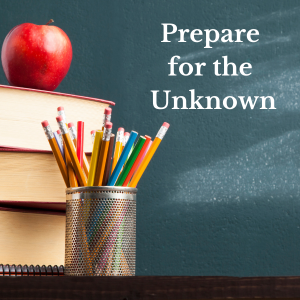Our VP of Partnerships at America Succeeds, Stephanie Short, spoke with Corey Mohn of the CAPS Network about how we cultivate career-ready learners. Listen as we introduce The Network to our Durable Skills initiative and provide guidance and information that helps young people in building the skills and competencies necessary to get them hired and promoted.
https://capsnetwork.buzzsprout.com/728390/9241567-episode-33-prepare-for-the-unknownAbout CAPS Network
Center for Advanced Professional Studies (CAPS) programs are nationally recognized, innovative high school programs. Students fast forward into their future and are fully immersed in a professional culture, solving real world problems, using industry standard tools and are mentored by actual employers, all while receiving high school and college credit. CAPS is an example of how business, community and public education can partner to produce personalized learning experiences that educate the workforce of tomorrow, especially in high skill, high demand jobs.
The CAPS Network is designed to create rich and meaningful experiences for students, as well as partners. Programs that partner with the CAPS Network share best practices and connections with professional partners, post-secondary institutions and students.
The Universal Demand for Durable Skills
In an era when technical skills are evolving at an unprecedented pace, there is an important set of durable ‘soft skills’ that last a lifetime and power entire careers. Durable Skills are a combination of how you use what you know — skills like critical thinking, communication, collaboration, and creativity — as well as character skills like resilience and leadership. Regardless of an individual’s pathway, educational attainment level, or geography, Durable Skills are in high demand by employers.
We believe it is imperative for students to better develop these skills within K-12 education systems. Prior to the pandemic, only 49% of learners completed an associate’s degree or higher after high school, and COVID-19 further exacerbated inequities for students of color, low-income, and rural students across the country. As we look toward economic recovery — and meeting the goals of workforce diversity, equity, and inclusion efforts — Durable Skills education can help ensure a broader and more inclusive group of learners ultimately find success in their careers and communities.

